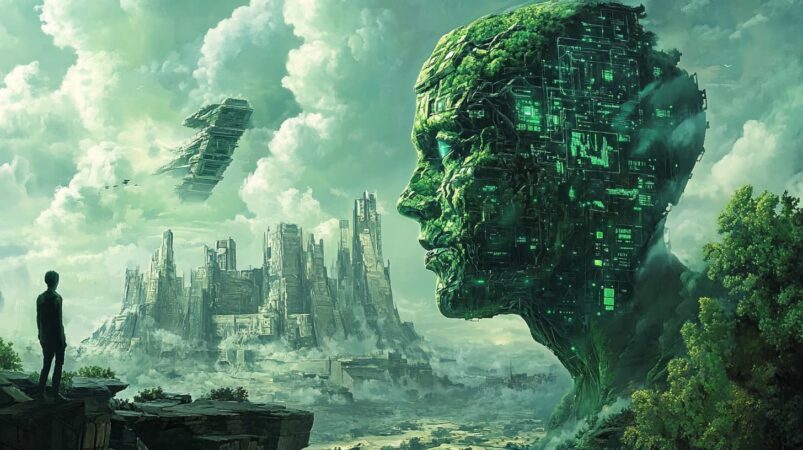Navigating Existence in the Digital Millennium
The convergence of digital technology, biotechnological advancement, and cultural transformation has initiated a profound reimagining of what it means to be human. Traditional philosophical frameworks that once guided our understanding of human existence now require careful recalibration to address emerging questions about consciousness, identity, and purpose in an increasingly digitized world.
The philosophical landscape of human existence has evolved dramatically since the early contemplations of ancient philosophers. Where Plato pondered the nature of reality through his allegory of the cave, contemporary thinkers must now grapple with questions of virtual reality and digital consciousness. The fundamental query “What does it mean to be human?” has acquired new dimensions in an age where the boundaries between biological and technological existence grow increasingly permeable.
The Philosophical Foundations of Tomorrow
The classical philosophical distinction between mind and body, famously articulated by Descartes, faces new challenges in the digital age. The emergence of extended cognition theories suggests that human consciousness may extend beyond the traditional boundaries of the skull and skin, incorporating technological extensions as genuine parts of our cognitive processes. This perspective fundamentally reshapes our understanding of human nature and consciousness.
Contemporary philosophical discourse increasingly recognizes that human existence operates within a complex web of technological, biological, and social systems. The post-humanist paradigm suggests that humanity’s future may lie not in preserving traditional boundaries, but in thoughtfully navigating their transformation. This evolution in philosophical thinking provides crucial frameworks for understanding humanity’s trajectory.
The Digital-Human Synthesis
The relationship between human consciousness and artificial intelligence represents one of the most profound philosophical challenges of our time. As AI systems grow more sophisticated, questions about the nature of consciousness, intelligence, and experience become increasingly pressing. The development of machines that can process information, learn, and adapt raises fundamental questions about what distinguishes human consciousness from artificial information processing.

The Biotechnological Revolution
Advances in biotechnology present both promising opportunities and ethical challenges for human enhancement. The possibility of genetic engineering and cognitive enhancement technologies forces us to confront questions about the boundaries of human identity and the ethics of self-modification. These developments challenge traditional concepts of human nature and raise important questions about equality, access, and the future direction of human evolution.
Cultural Metamorphosis in the Digital Era
The digital transformation of human society has fundamentally altered how individuals construct and express their identities. Virtual spaces have become legitimate venues for self-expression and community formation, creating new forms of social interaction and cultural expression. These changes require a philosophical reexamination of concepts like authenticity, community, and social reality.
The emergence of global digital culture has created unprecedented opportunities for cultural exchange and synthesis, while simultaneously raising concerns about cultural homogenization. This tension between global connectivity and local identity represents a key philosophical challenge for understanding human existence.
Knowledge Dynamics in the Information Age
The democratization of information through digital technologies has transformed traditional power structures and knowledge hierarchies. However, this transformation brings new challenges related to information quality, truth verification, and the nature of expertise. The philosophical implications of these changes extend to fundamental questions about the nature of knowledge and truth.
Navigating Ethical Horizons
The environmental crisis demands a philosophical reconsideration of humanity’s relationship with nature. The integration of digital technologies offers new tools for environmental monitoring and protection, while also raising questions about the environmental impact of technological progress. This complex interaction between technological advancement and environmental responsibility requires careful philosophical examination.
Digital Justice and Human Flourishing
The digital transformation of society has created new forms of inequality and social exclusion. Philosophical frameworks for understanding justice and equality must evolve to address these challenges, ensuring that technological progress serves the flourishing of all humanity rather than exacerbating existing disparities.
Meaning and Purpose in a Digital World
The quest for meaning and purpose continues to define human existence, though the context for this search has transformed dramatically. Digital technologies have created new venues for meaning-making and self-realization, while simultaneously challenging traditional sources of purpose and value. The philosophical challenge lies in understanding how human beings can find authentic meaning and purpose in an increasingly digitized world.
Charting Future Trajectories
The convergence of technological advancement and human evolution suggests several possible futures for human existence. Some envision a post-human future where biological and technological elements merge seamlessly, while others advocate for maintaining clear distinctions between human and machine. These different visions require careful philosophical examination to understand their implications for human identity and society.
The development of artificial general intelligence and the possibility of technological singularity raise profound questions about the future of human agency and consciousness. These potential futures demand philosophical frameworks that can help guide human development while preserving essential aspects of human dignity and autonomy.
Adaptation and Evolution
The rapid pace of technological change requires new approaches to individual and collective adaptation. Philosophical wisdom becomes crucial in developing frameworks for navigating these changes while maintaining human flourishing. This includes understanding how educational systems, governance structures, and cultural institutions must evolve to support human development in the digital age.
Practical Implications and Policy Considerations
The transformation of human existence through digital technology requires new approaches to governance and policy-making. Traditional political philosophies must be updated to address challenges like artificial intelligence regulation, data privacy, and digital rights. The development of ethical frameworks for technological governance represents a crucial challenge for contemporary philosophical thinking.
Educational Evolution
The changing nature of human existence demands new approaches to education and development. Critical thinking skills, digital literacy, and ethical reasoning become increasingly important as individuals navigate an increasingly complex technological landscape. Educational philosophy must evolve to address these new requirements while preserving essential aspects of human learning and development.
The Path Forward
As humanity continues its journey into an increasingly digitized future, philosophical inquiry becomes more crucial than ever. The challenges and opportunities presented by technological advancement require careful consideration of fundamental questions about human nature, consciousness, and purpose. The future of human existence will be shaped by how we address these philosophical challenges.
Several key considerations emerge as particularly significant for future philosophical inquiry:
- The need to maintain human dignity and agency in an increasingly automated world
- The importance of ensuring equitable access to technological advancement
- The challenge of preserving meaningful human connection in digital spaces
- The necessity of developing ethical frameworks that can guide technological development
The philosophical examination of human existence in the digital age reveals both profound challenges and extraordinary opportunities. As we navigate this transformation, philosophical wisdom provides essential guidance for ensuring that technological progress serves human flourishing rather than diminishing it. The future of human existence will depend on our ability to thoughtfully engage with these philosophical questions and develop frameworks that support positive human development.
The path forward requires a delicate balance between embracing technological advancement and preserving essential aspects of human experience. Through careful philosophical reflection and practical wisdom, humanity can work toward a future that enhances rather than diminishes human potential. The ongoing dialogue between philosophical tradition and technological innovation will be crucial in shaping this future.
Amplifying Ideas, Muting Noise: The Role of Acoustics in Philosophical Conferences
The convergence of digital technology, biotechnological advancement, and cultural transformation has initiated a profound reimagining of what it means to be human. Traditional philosophical frameworks that once guided our understanding of human existence now require careful recalibration to address emerging questions about consciousness, identity, and purpose in an increasingly digitized world. The philosophical landscape of …
From Socrates to Diploma: Ghostwriting Your Philosophy Bachelor Thesis
The convergence of digital technology, biotechnological advancement, and cultural transformation has initiated a profound reimagining of what it means to be human. Traditional philosophical frameworks that once guided our understanding of human existence now require careful recalibration to address emerging questions about consciousness, identity, and purpose in an increasingly digitized world. The philosophical landscape of …
